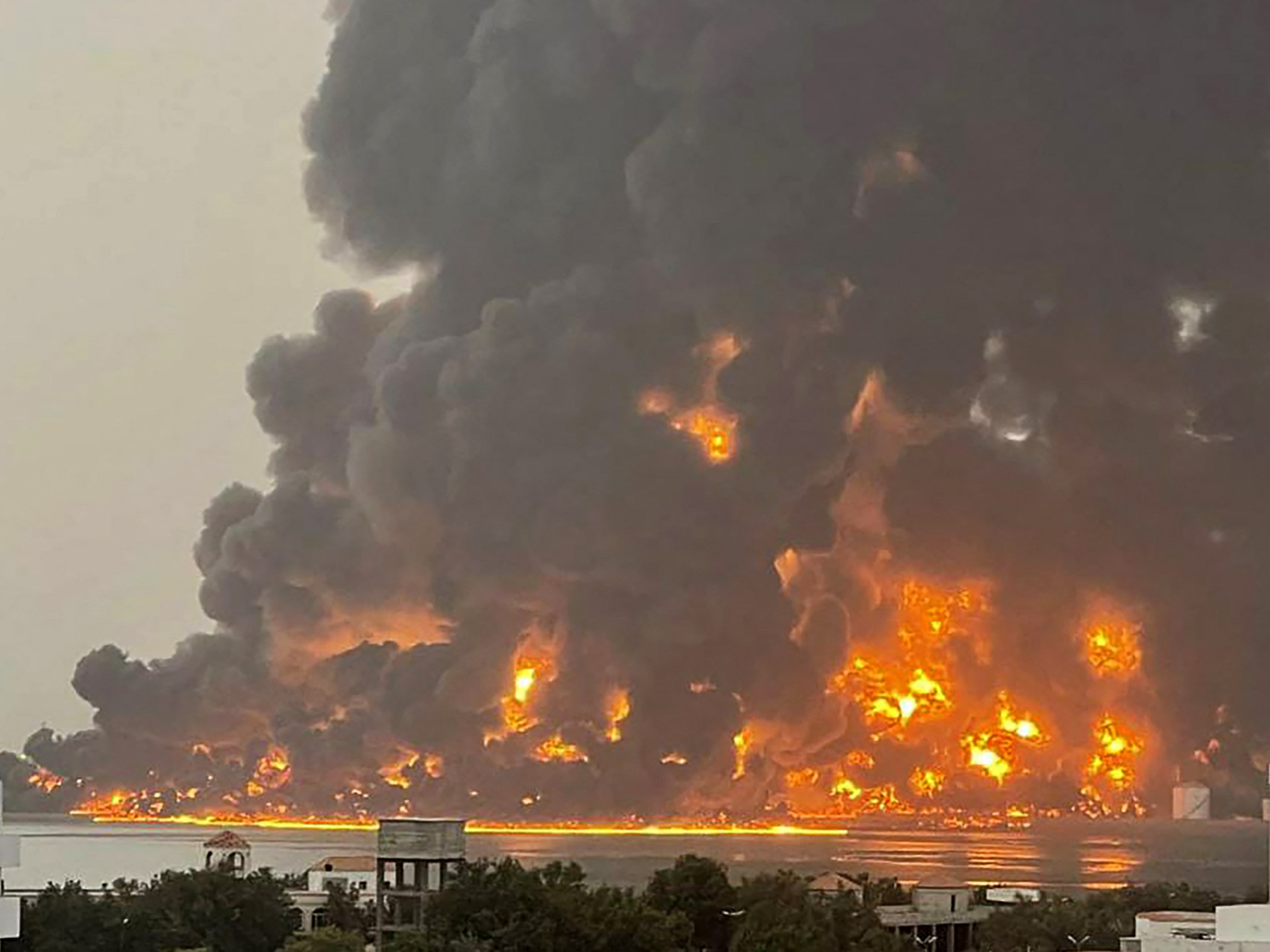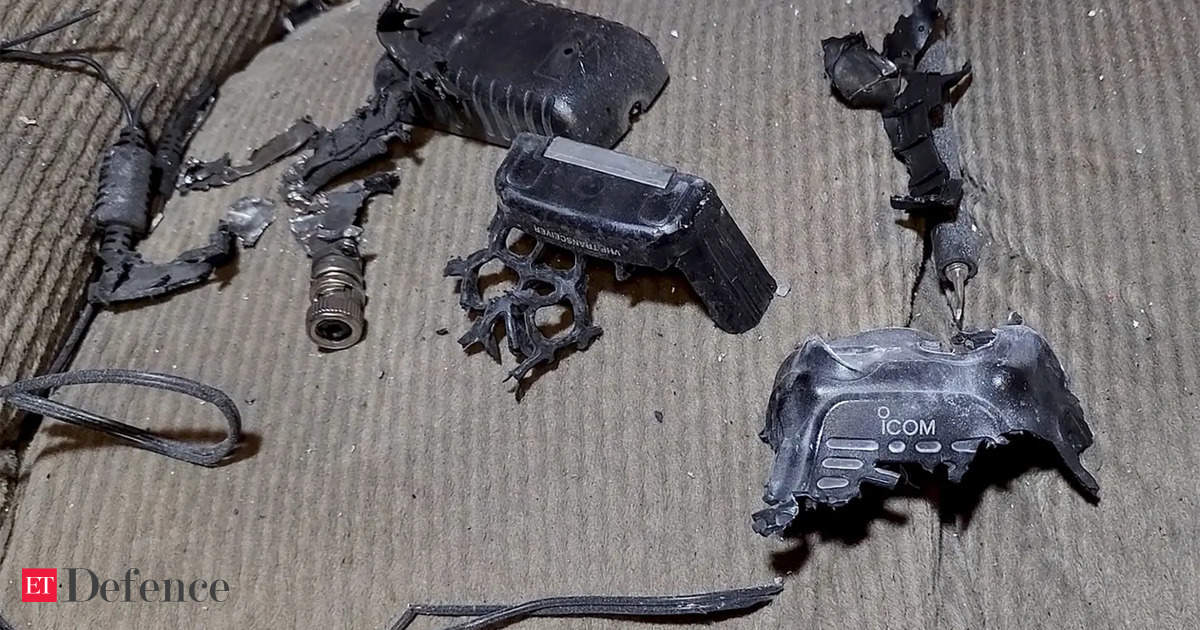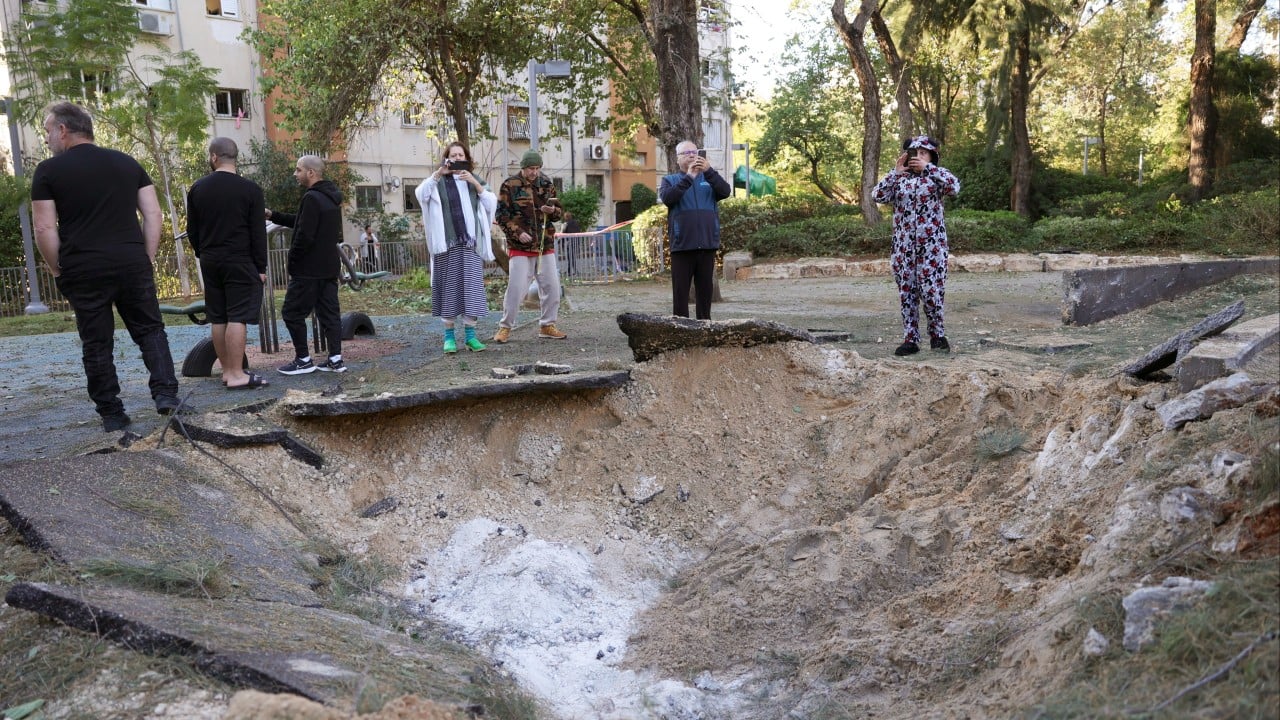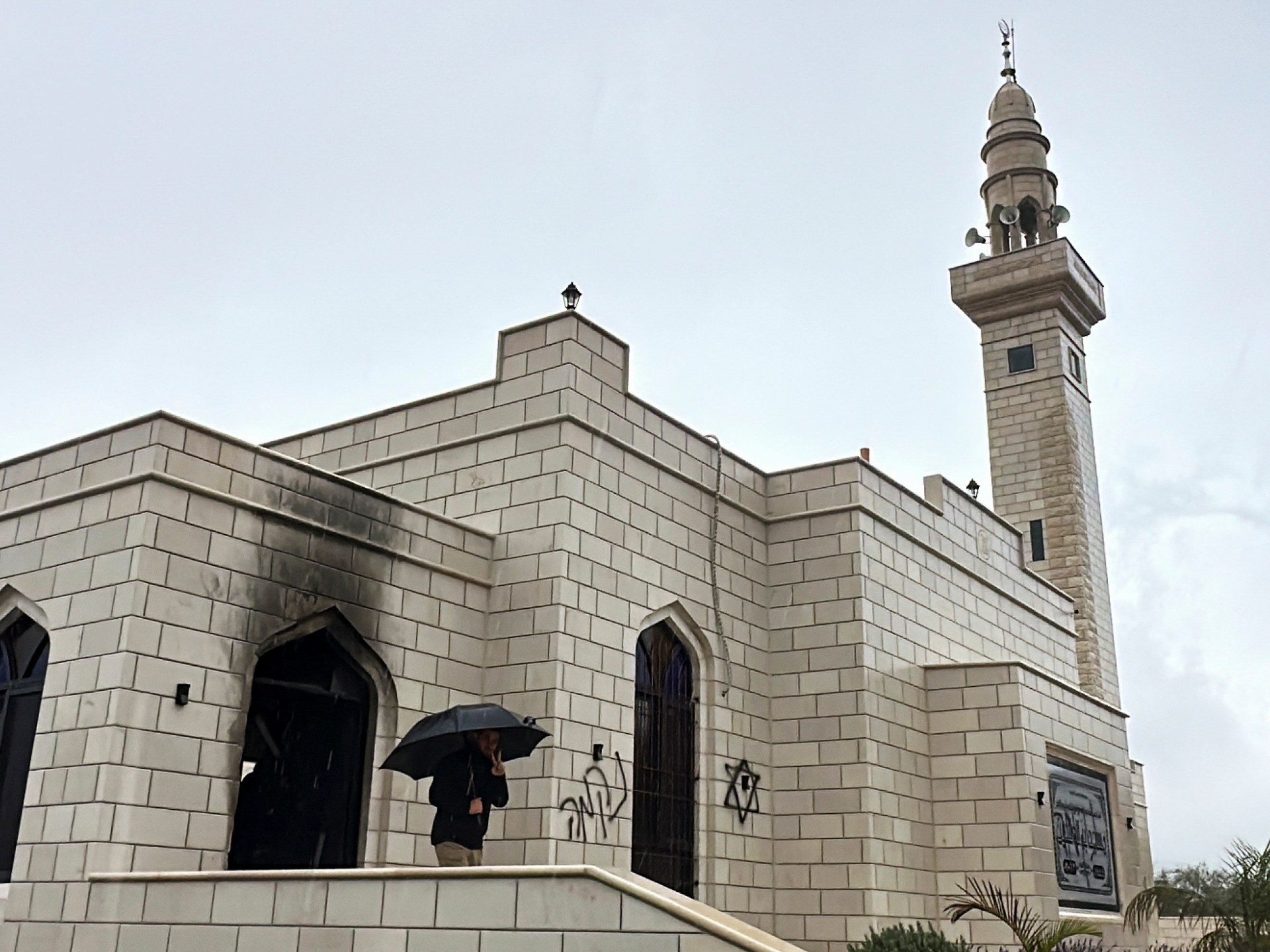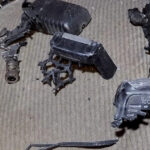The Israeli military has said it has conducted strikes against Yemen’s Red Sea port city of Hodeidah in response to attacks by the Houthi group.
The Ministry of Health, which operates in Houthi-controlled areas of Yemen, said three people were killed and 87 wounded, many with severe burns as a result of the Israeli strikes. The toll has risen to six.
The Israeli air raids on Saturday were carried out a day after the Houthis claimed responsibility for a drone attack that killed one person in Tel Aviv and injured 10 others.
You may be interested
On Sunday morning, Houthi military spokesman General Yahya Saree said during a televised address that the group attacked the Israeli port city of Eilat with a number of ballistic missiles in an operation that “achieved its goals successfully”.

After sirens sounded in Eilat, the Israeli military confirmed one surface-to-surface ballistic missile was launched from Yemen, but said its long-range Arrow-3 missile defence system shot it down.
The Houthi military spokesman also claimed an attack on the Pumba, a container ship that he described as “American”. Saree said the group used ballistic missiles and drones in the attack, achieving a “direct hit on the ship” in the Red Sea. The United Kingdom Maritime Trade Operations (UKMTO) confirmed on Saturday that the Liberia-flagged MV Pumba sustained damage.
Mohammed al-Bukhaiti, a spokesman for the Houthis, told Al Jazeera on Sunday afternoon that Israel’s attack on “civil establishments” must be met with “a painful reply”.
“When we took part in this war, we understood there might be sacrifices and losses, but our stand is just and ethical and will never stop until the Zionist entity stops its crimes in Gaza”, he said.
According to Houthi-affiliated Al Masirah TV, the Israeli attack on Hodeidah targeted oil storage facilities and a power plant, igniting a fire. The news outlet cited health officials as saying the air raids resulted in casualties, including fatalities, without specifying a number.
But the Israeli military said it hit “military targets” in Yemen.
The Israeli air strikes are the first known direct attack by Israel against the Houthis since the start of the war on Gaza. The assault comes amid growing fears of escalating violence across the Middle East.
The Houthi Supreme Political Council promised to respond to Saturday’s attack. “This aggression will not pass without an effective response against the enemy,” it said in a statement.
Houthi spokesman Mohammed Abdelsalam said the “brutal Israeli aggression against Yemen” aims to “pressure Yemen to stop supporting Gaza, which is a dream that will not come true”.
Saree, the Houthi military spokesman, added later on Saturday that the group would not hesitate in attacking “vital targets” in Israel, maintaining a promies that Tel Aviv remains “an unsafe area”.
Hamas was quick to condemn the Israeli assault. “The occupation state will undoubtedly be burned by the fire ignited in Hodeidah today, and the mounting Zionist crimes will change the entire equation,” Izzat al-Rishq, a member of the Palestinian group’s political bureau, said in a statement.
Hezbollah voiced support for the Houthis and the Yemeni people after the attack, as well.
“We think that this stupid step by the Zionist enemy is a sign of a new, dangerous phase in the confrontation at the level of the entire region,” the Lebanese group said in a statement.
But Israeli Defense Minister Yoav Gallant lauded the attack as a warning to Israel’s adversaries.
“The fire that is currently burning in Hodeidah is seen across the Middle East and the significance is clear,” Gallant said. “The Houthis attacked us over 200 times. The first time that they harmed an Israeli citizen, we struck them. And we will do this in any place where it may be required.”
Israeli Prime Minister Benjamin Netanyahu said the port struck by fighter jets was used as an entry point for the Houthis to receive Iranian weapons.
Netanyahu added that the strike, some 1,800 km (1,120 miles) from Israel’s borders, was a reminder to enemies that there is no place that Israel could not reach.
Yousef Mawry, a Yemeni journalist and political analyst, told Al Jazeera that he witnessed people in Sanaa rushing to get fuel after the attack amid fears of shortages, stressing that the Israeli strikes targeted “public facilities”.
He said the attack would place the burden on civilians, leaving them without “access to basic necessities”, including propane gas and fuel.
The Iran-allied Houthis, who present themselves as Yemen’s official armed forces, have been targeting shipping lanes in the Red Sea in a campaign that they say aims to pressure Israel to end its war on Gaza, which has killed more than 38,900 Palestinians.
The Yemeni group has also launched ballistic missiles and drones at Israel, most of which have been intercepted.
But early on Friday, an explosive-laden Houthi drone eluded Israeli air defences and struck a building in Tel Aviv in what was seen as a major security breach in Israel.
Israeli officials had promised to respond. Gallant promised in a message to the Houthis on Friday that Israel “will settle the score” with anyone who harms its security.
The United States and United Kingdom have been conducting air strikes in Yemen for months in response to the Houthis’ Red Sea assaults. But the military campaign has failed to stop the Yemeni group’s attacks. The US said it was not involved in the Israeli strike.
Al Jazeera’s Hamdah Salhut said the latest developments will likely strain the Israeli military, which “is already stretched thin”, amid fears of an all-out regional war.
Salhut noted that Israeli reservists are operating in both the northern and southern parts of the country as Israel fights Hamas in Gaza and Hezbollah in Lebanon.
“If the air force is going to have to be additionally deployed to more parts of the Middle East like Yemen, it’s tough to say how exactly they’re going to manage that when they’re looking still to recruit more people for the army,” she said. “It’s a lot of pressure on the Israelis as yet another front has opened this morning.”

